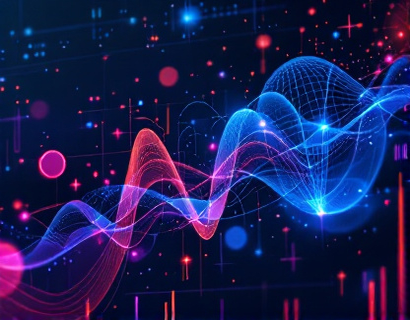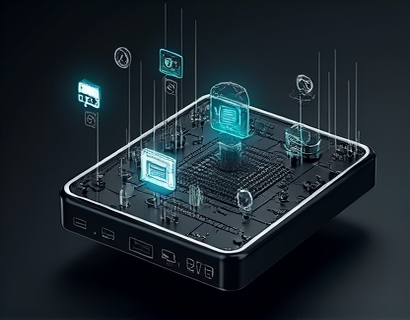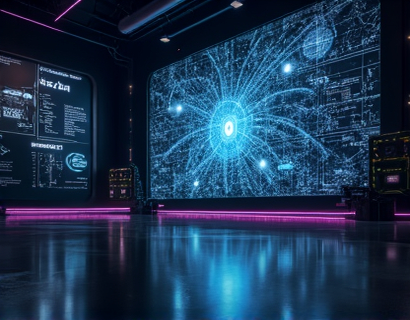AI-Powered Personalized Healthcare Solutions: Revolutionizing Instant Medical Support
The landscape of healthcare is undergoing a transformative shift with the integration of artificial intelligence (AI) and advanced online technologies. This evolution is giving rise to AI-powered personalized healthcare solutions that offer instant medical support and expert advice, marking a new era in healthtech. These innovative platforms are designed to empower individuals, enabling them to make informed health decisions and receive timely assistance, ultimately enhancing overall well-being.
Understanding AI in Healthcare
Artificial intelligence in healthcare refers to the application of AI technologies to analyze medical data, support clinical decision-making, and improve patient care. AI algorithms can process vast amounts of data from various sources, including electronic health records, medical literature, and real-time patient monitoring, to provide insights and recommendations. In the context of personalized healthcare, AI systems tailor medical advice and support to individual needs, considering factors such as genetic makeup, lifestyle, and environmental influences.
The Need for Personalized Medical Advice
Traditional healthcare models often struggle to provide personalized attention due to the high volume of patients and the complexity of individual health issues. This is where AI-powered personalized healthcare solutions excel. By leveraging advanced algorithms and machine learning, these platforms can analyze a user's unique health data and provide tailored advice and support. This approach not only enhances the accuracy of medical recommendations but also increases user engagement and satisfaction.
Key Benefits of Personalized Healthcare
- Enhanced Accuracy: AI systems can identify patterns and correlations that might be missed by human practitioners, leading to more accurate diagnoses and treatment plans.
- Timely Assistance: Users receive immediate support and advice, which is crucial in emergency situations or for chronic condition management.
- Increased Accessibility: These platforms are available 24/7, breaking down geographical and time barriers to healthcare access.
- Cost Efficiency: By providing proactive and preventive care, AI-powered solutions can reduce healthcare costs associated with hospital visits and emergency treatments.
How AI-Powered Platforms Work
AI-powered healthcare platforms operate through a combination of data collection, analysis, and user interaction. Here’s a simplified overview of the process:
1. Data Collection: Users input their health data, which may include symptoms, medical history, lifestyle factors, and real-time health metrics from wearable devices.
2. Data Analysis: AI algorithms process this data, cross-referencing it with extensive medical databases and research to generate insights.
3. Personalized Recommendations: Based on the analysis, the platform provides personalized medical advice, treatment options, and preventive measures.
4. Continuous Learning: The system learns from user interactions and feedback, continuously improving the accuracy and relevance of its recommendations.
Real-World Applications
AI-powered personalized healthcare solutions are already making a significant impact in various areas:
- Chronic Disease Management: Platforms monitor and manage conditions like diabetes, heart disease, and asthma, providing real-time alerts and personalized advice to prevent complications.
- Mental Health Support: AI chatbots and virtual assistants offer immediate support for mental health issues, providing coping strategies and connecting users with professional help when needed.
- Pharmacogenomics: AI analyzes genetic data to recommend the most effective medications and dosages, minimizing side effects and improving treatment outcomes.
- Telemedicine: Integrated with telehealth services, AI platforms facilitate remote consultations, ensuring users receive expert advice without the need for in-person visits.
Empowering Users with Knowledge
One of the most significant advantages of AI-powered personalized healthcare solutions is their ability to educate users about their health. These platforms provide accessible, understandable information on various medical conditions, treatment options, and lifestyle changes. By empowering users with knowledge, these solutions foster a proactive approach to health, encouraging individuals to take charge of their well-being.
Patient Engagement and Compliance
Engaged patients are more likely to adhere to treatment plans and follow medical advice. AI-driven platforms enhance engagement through:
- Personalized Communication: Tailored messages and reminders keep users informed and motivated.
- Interactive Tools: Features like symptom trackers, medication reminders, and health logs make managing health easier and more interactive.
- Community Support: Forums and support groups connect users with others facing similar challenges, fostering a sense of community and shared experience.
Challenges and Considerations
While AI-powered personalized healthcare solutions offer numerous benefits, there are also challenges and considerations to address:
Data Privacy and Security
Protecting user data is paramount. Platforms must adhere to strict data privacy standards and implement robust security measures to safeguard sensitive health information.
Regulatory Compliance
Healthcare is a highly regulated industry. AI platforms must comply with regulations such as HIPAA in the United States and GDPR in Europe, ensuring that patient data is handled legally and ethically.
User Trust and Acceptance
Building trust is crucial for the adoption of AI-powered healthcare solutions. Transparency about how data is used, the accuracy of recommendations, and the role of human experts in the process can help alleviate concerns and increase user acceptance.
The Future of Healthcare
The integration of AI in healthcare is not just a trend but a fundamental shift towards more efficient, effective, and patient-centered care. As technology continues to advance, we can expect even more sophisticated and integrated solutions that further enhance the quality of healthcare services.
AI-powered personalized healthcare solutions are poised to play a pivotal role in the future of healthtech, offering instant medical support and expert advice to users worldwide. By leveraging the power of AI, these platforms are not only improving individual health outcomes but also contributing to a more resilient and responsive healthcare system.










































